Publications
Evidence shows that the global Goals worked. They galvanized the entire global community to address the most pressing issues at the beginning of the Millennium, centered in lifting people from extreme poverty and improving the lives of those most disadvantaged. “The MDG experience provides compelling evidence that the international community can be mobilized to confront complex challenges. Governments, civil society and a wide range of international actors coalesced behind the MDGs in a multi-front battle against poverty and disease,” said Secretary-General Ban Ki-moon.
They served as a framework for local, national, regional and global monitoring of development progress…
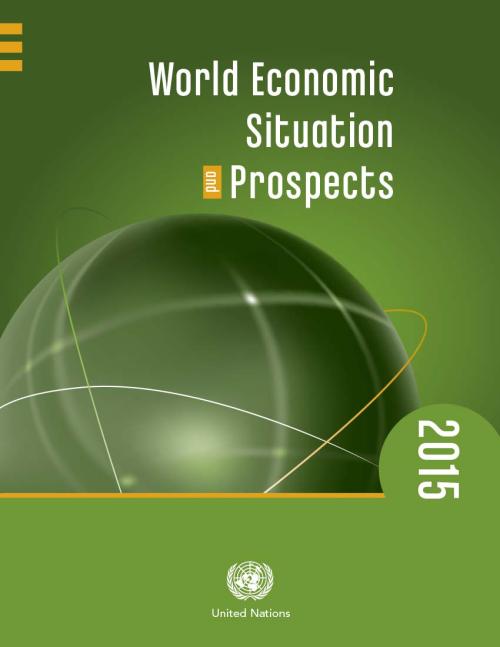
The world economy continues to grow at a modest pace, with a gradual improvement projected for the second half of 2015 and 2016, according to the World Economic Situation and Prospects (WESP) as of mid-2015 report.
Growth of world gross product is projected to improve slightly from 2.6 per cent in 2014 to 2.8 per cent in 2015—a downward revision by 0.3 percentage points from the forecast presented in the WESP 2015 in January.
The downward revision reflects mainly deterioration in the prospects of the economies in transition and several large developing countries, especially in South America. In 2016, global growth is forecast to improve to 3.1 per cent, which is still well…
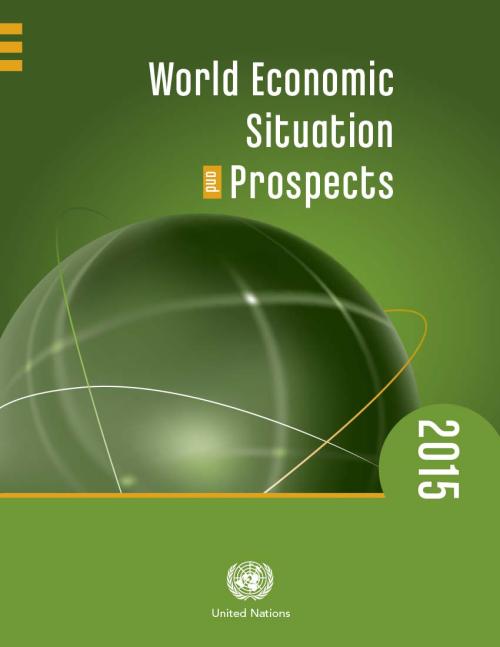
Global economic growth is forecast to increase marginally over the next two years, according to the United Nations World Economic Situation and Prospects 2015 (WESP) report.The global economy is expected to grow 3.1 per cent in 2015 and 3.3 per cent in 2016, compared with an estimated growth of 2.6 per cent for 2014.
The global economy expanded during 2014 at a moderate and uneven pace. Legacies from the global financial crisis continue to weigh on growth, while new challenges have emerged, including geopolitical conflicts such as in Ukraine and the Ebola epidemic.
Unemployment figures remain historically high in some regions, but appear to have stopped rising. While…
Millions of people’s lives have improved due to concerted global, regional, national and local efforts to achieve the Millennium Development Goals (MDGs), which serve as the foundation for the next global development agenda, according to the report launched by the Secretary-General on 7 July 2014.
With many MDG targets already met on reducing poverty, increasing access to improved drinking water sources, improving the lives of slum dwellers and achieving gender parity in primary school, the report says many more targets are within reach by their 2015 target date. If trends continue, the world will surpass MDG targets on malaria, tuberculosis and access to HIV treatment, and the…
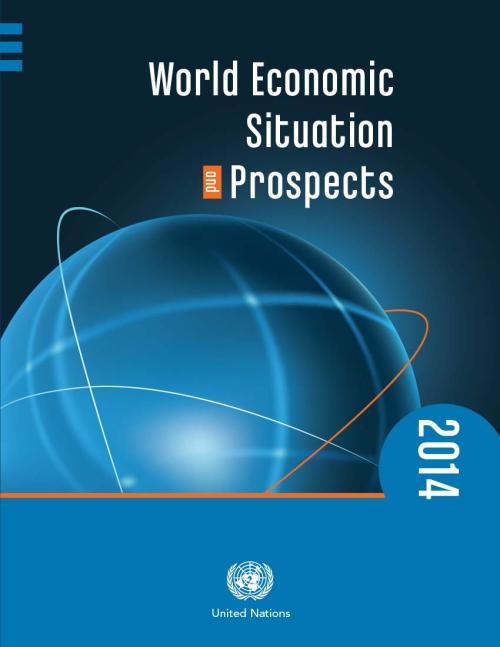
The global economy is expected to strengthen over the next two years, despite a downgrade of growth prospects for some developing economies and economies in transition, according to the UN World Economic Situation and Prospects (WESP) 2014 mid-year update. Global growth has been revised slightly lower from the forecasts presented in the WESP 2014. Growth of world gross product (WGP) is now projected at 2.8 per cent in 2014 and 3.2 per cent in 2015, up from 2.2 per cent in 2013. However, this pace of expansion is still low compared to the growth path before the 2008 global financial crisis.
“More than five years after the financial crisis, the world continues to struggle with…
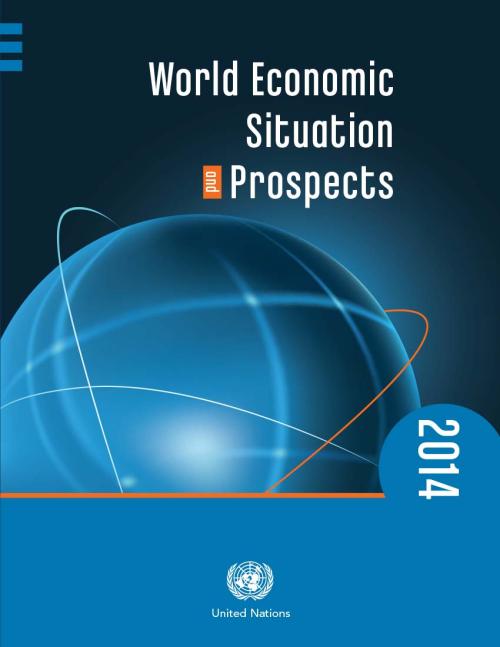
Global economic growth should increase over the next two years with continuing signs of improvement, according to the United Nations World Economic Situation and Prospects 2014 (WESP) report. The global economy is expected to grow at a pace of 3.0 per cent in 2014 and 3.3 per cent in 2015, compared with an estimated growth of 2.1 per cent for 2013.
The world economy experienced subdued growth for a second year in 2013, but some improvements in the last quarter have led to the UN’s more positive forecast. The euro area has finally ended a protracted recession. Growth in the United States strengthened somewhat. A few large emerging economies, including China and India,…
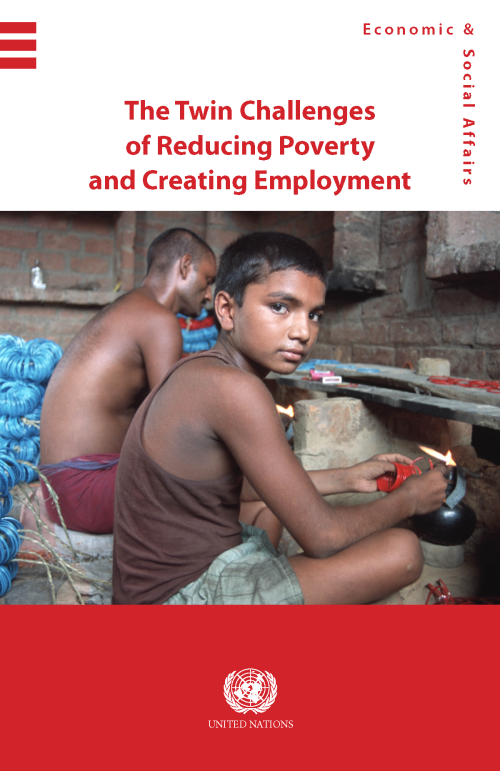
This E-publication is based on papers presented at two Expert Group Meetings (jointly organized by DSPD and the ILO) that brought together specialists to undertake a review of progress in eradicating poverty and to analyse policy responses to the global jobs crisis in different countries and regions of the world. It calls for a reorientation of macroeconomic policies from the current heavy emphasis on short-term stability to the promotion of sustained, inclusive and equitable growth. It stresses the need for the integration of social and economic policies to enable the attainment of people-centred development outcomes.
The experience from the Millennium Development Goals has shown that well-defined, objectively measurable indicators can help to maintain focus on internationally agreed development goals and targets, while keeping the world informed of achievements, problem areas and emerging issues.
Looking ahead to the post-2015 development agenda, it will be important to develop a robust monitoring system that draws on traditional data collection methods and innovations in statistics and data collection to develop a monitoring framework that can measure progress on the various thematic areas.
While it is still too early to define a set of indicators and targets for the development…
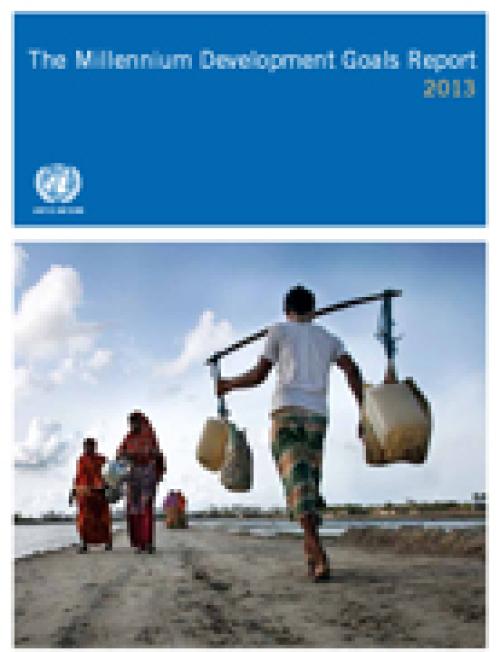
“The Millennium Development Goals have been the most successful global anti-poverty push in history,” Mr. Ban said. “The MDGs have proven that focused global…
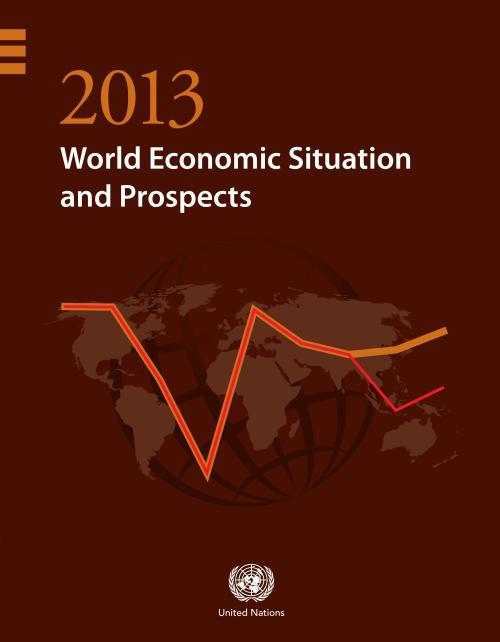
Global economic activity is projected to slowly gain momentum, but growth will continue to be below potential and employment gains will remain weak, says the UN report. It notes that since late 2012, new policy initiatives in major developed economies have reduced systemic risks and helped stabilize consumer, business and investor confidence, but with very limited improvement on economic growth.
“The main priority for policy makers worldwide should be to support a robust and balanced global recovery, with a focus on promoting job creation,” said Shamshad Akhtar, UN Assistant Secretary-General for Economic Development.
Global growth has been revised slightly downward…
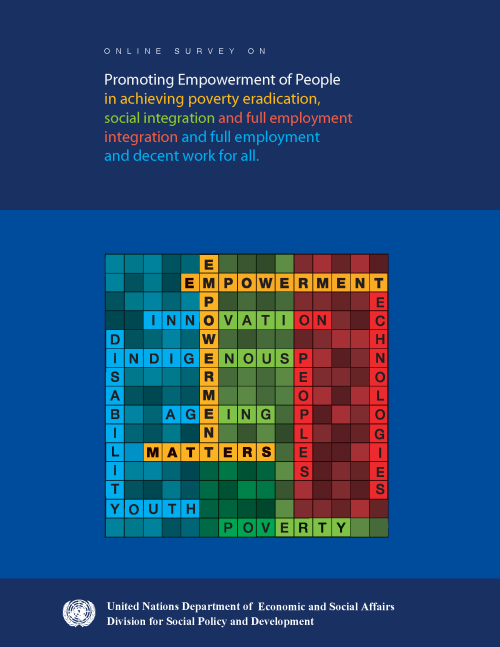
UNDESA-DSPD, from 8 August to 5 September 2012, conducted a global online survey to gather inputs for consideration by the 51st session of the Commission for Social Development (CSocD), which took place from 6 to 15 February 2013.
The survey enabled the public worldwide to respond to a set of questions that were related to the priority theme of CSocD on “Promoting empowerment of people in achieving poverty eradication, social integration and full employment and decent work for all”.
The responses collected and selected from the first question “Empowerment: What does it mean to you?” was published in a separate booklet.
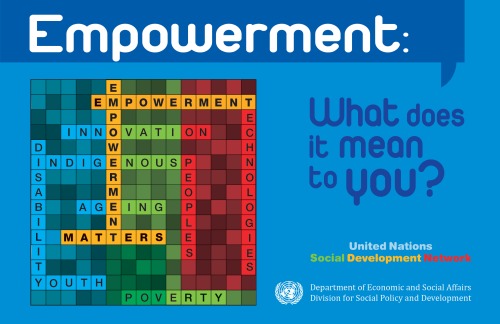
The “Definitions of Empowerment” represents a collaborative effort, made possible by the answers received from people all over the world on the Empowerment theme. Their invaluable contributions were essential for the preparation of the Empowerment Publication.
In order to collect people’s ideas and experiences, the Division for Social Policy and Development (DSPD) of UNDESA launched an on-line survey on “Promoting Empowerment of People”.
We were glad to receive tens and tens of responses from young individuals, persons with disabilities, older persons, and people working for various institutions and organizations committed to social development issues. Their keen interest…
 Welcome to the United Nations
Welcome to the United Nations